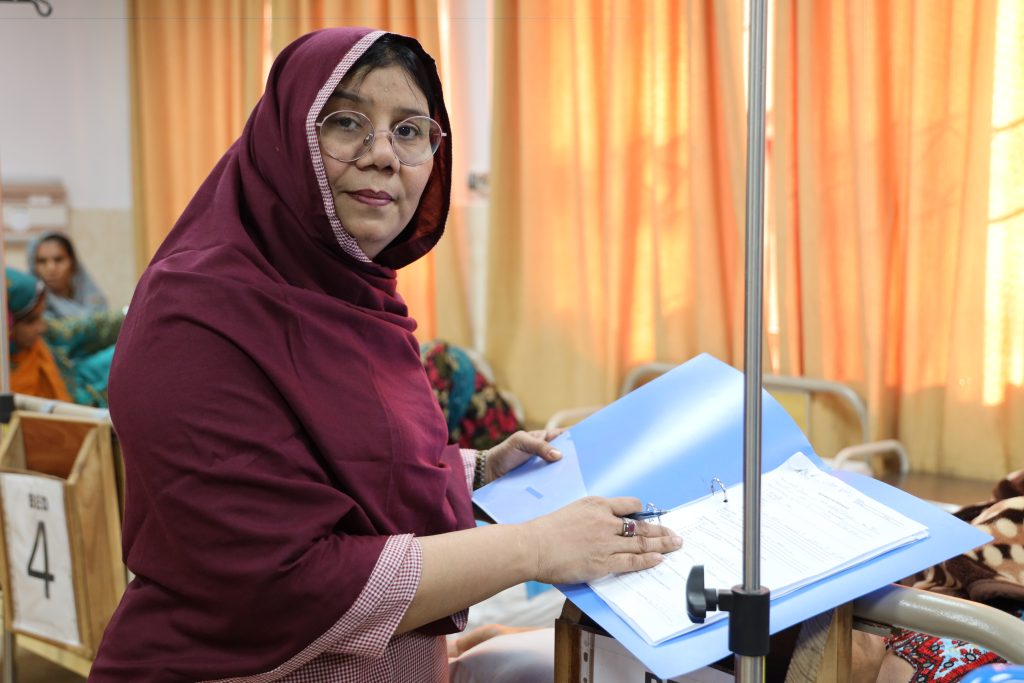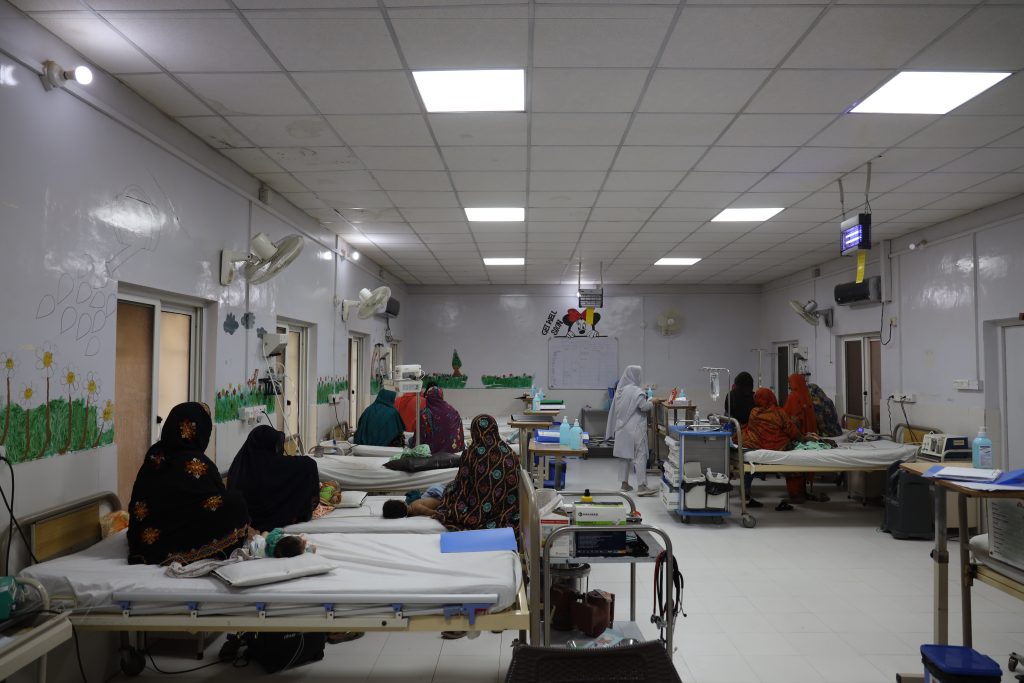In the heart of Dera Murad Jamali, a town in eastern Balochistan frequently battered by seasonal floods and chronic poverty, the mother and child healthcare facility supported by Médecins Sans Frontières (MSF) at the District Headquarter Hospital serves as a vital centre of support and care. The facility offers a wide range of services including maternity care, neonatal intensive care, paediatric admissions, a therapeutic feeding program for malnourished children, lab services, and family planning—all delivered free of charge in a region where healthcare is otherwise largely out of reach.
This facility is where Wazira Begum, a grandmother from the nearby village of Abdul Ghani Solangi, came to visit her newborn grandson, now being treated in the neonatal intensive care unit (NICU) for a chest infection. ‘We have lived in a tent since the 2022 floods destroyed our house. It gets very cold in winter, and we couldn’t protect the baby from the cold,’ she explains. ‘We brought him here in a very serious condition. Now, thanks to the doctors, he’s doing much better.’
Wazira’s story is one of both hardship and resilience. She lives with her extended family of forty who have been displaced by the floods and lack access to clean drinking water, proper shelter, or reliable income.
Yet amid these challenges, Wazira finds solace in the care provided by MSF. ‘Eleven of my grandchildren were born here at MSF facility. My youngest daughter–in–law is pregnant, and we come for antenatal check–ups regularly. We are given food, medicine and everything here. For poor
people like us, this place is a blessing.’

These are the realities that Fozia Munir, the mother and childcare ward supervisor at MSF’s project in Dera Murad Jamali, sees every day. Originally from Faisalabad, she has worked with MSF since 2003 and has spent over a decade serving in this region. ‘We see more than 500 antenatal patients each week. Many come from far–off areas with no healthcare facilities, walking through the night just to get here,” she says. “This morning, a woman arrived from Gandawah in Jhal Magsi District. There’s no trained birth attendant where she lives. She walked in the dark and reached us at 5 a.m.,’ she shares.
The MSF–supported facility offers 24–hour basic emergency obstetric and newborn care, assisted deliveries, postnatal consultations, family planning, and nutrition support for pregnant and lactating women. Complicated cases are referred to health facilities in Sindh province, including Sukkur and Larkana, with MSF covering transport and ensuring continuity of care. In 2024 alone, over 13,800 antenatal consultations and 3,500 births were assisted here.
Fozia recalls the 2022 floods, when a patient was carried for hours through the water in her husband’s arms to reach the hospital.
The challenges in the region go beyond healthcare. Wazira’s family, like many others, faces recurring climate disasters, tribal conflict, and systemic poverty. Access also remains a major hurdle. ‘Our house is 20 kilometers away. The road is broken, and there is no public transport. We have to pay Rs. 1,500 (nearly 5 EUR) for a rickshaw ride to get here,’ Wazira shares. “And in summer, the heat becomes unbearable. There’s no shade, no clean water. We drink from the same canals as animals.’

Despite the many challenges faced by patients who seek care from MSF, Fozia sees how some change is visible. “We used to give birth at home. I lost five children,” Wazira recalls. “Now, we come here. Our babies are born safely, and we are treated with dignity.”
In a region where health services are stretched thin and disasters strike frequently, MSF’s continued presence fills a critical gap. The 2024 figures—nearly 10,000 children receiving nutritional support, over 20,000 malaria tests conducted, and thousands treated—represent not only statistics, but lives saved.
For families like Wazira’s and healthcare workers like Fozia, this facility is more than a medical centre. It is a place of hope, protection, and care—proof that compassionate, quality healthcare can still reach those who need it most.












